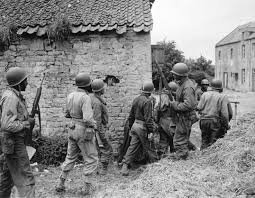Top 10 Events that Shook Nigeria
In every country, there are events which reverberate through the length and breadth of the nation; Nigeria is no different. There were events in Nigeria which shook the country to its very foundation. We decided to remind you of some 10 of such events. You might not have a problem remembering any of them since they caused a lot commotion in the country.
10. Removal of fuel subsidy by Goodluck Jonathan

On 1st of January 2012, the federal government of Nigeria announced the removal of subsidy on Premium Motor Spirit popularly known as petrol or fuel. The federal government had announced that petrol will no longer be sold at N65 but N141. That announcement reverberated all through the country like a death sentence.
Nigerians didn’t take that pronouncement well at all. The country was brought to a temporary standstill as government officials and labor unions went into nationwide protests and strike fearing impending hardship and the high cost of living. Some protesters were killed in the process. In the end, the federal government rescinded its decision and brought down the pump price of PMS to N97.
9. Aba women riot
The Aba women riot happened close to 90 years ago, but it is still today, an event that cannot be forgotten in Nigeria’s history. This was an event that shook the country which then was still under colonial rule.
The story goes that the then British colonial masters who ruled Nigeria had imposed a system of indirect rule in Southern Nigeria. The warrant chiefs who were being used by the British then announced that market women would henceforth pay taxes.
Wild protests broke out in November 1929 as the women protested against the taxes being levied on them. The protest became violent and many people including the women lost their lives. Nigerians were shocked at the unity displayed by the market women.
In the end, the British colonial administration rescinded its decision to levy taxes on the market women.
8. June 12, 1993, Babangida annuls presidential election
On June 12, 1993, Nigerians went to the polls to elect a new democratic president. It was to be the dawn of a new era for a country that has been subjected to years of military dictatorship.
Two candidates contested the election, in Moshood Kashimawo Olawale Abiola and Bashir Tofa. In the end, then head of State, General Ibrahim Babangida annulled the election in which Moshood Abiola was poised for a victory.
That annulment caused serious unrest in the country as supporters of Moshod Abiola engaged in large-scale protests which escalated into riots that saw hundreds of people killed. June 12 was a sad day for Nigerian democracy. Moshood Abiola was later arrested and poisoned to death in prison, while General Ibrahim Babangida was toppled in a military coup led by General Sani Abacha. That’s what happens when a military Head of State decided its not yet time to leave power.
7. Nigeria wins first ever Olympic gold medals

Here’s the first event that shook Nigeria, on a positive note, on the list. In the 1996 summer Olympics held in Atlanta USA, some Nigerian athletes showed the world that whatever was happening at home was not enough to put a blanket over their enormous talent.
Firstly, Chioma Ajunwa became the first Nigerian woman and the first Nigerian to win a gold medal in the Olympics when she leapt 7.12meters to win Olympic gold in the female long jump. Nigerians were ecstatic! That was not all, the male football team overcame the hurdles presented by Brazil and Argentina respectively to win football gold in the same tournament. The celebration lasted weeks!
6. Killing of Ken Saro-Wiwa
Another event that shook Nigeria was the gruesome killing of popular Niger-Delta activist -Ken Saro-Wiwa, alongside nine Ogoni Chiefs.
Ken Saro-Wiwa was an activist known for being outspoken about the degradation of the oil-rich Ogoni land by activities of oil companies. He was arrested by the military dictatorship of General Sani Abacha and convicted of murder by a military court. On 10th November 1995, Ken Saro-Wiwa and his colleagues were hanged.
His killing sparked international condemnation and led to Nigeria’s suspension from the Commonwealth of Nations for 3 years.
5. 1966 military coup
The 1966 military coup was a bloody coup and the first of the numerous coups that soiled Nigeria post-colonial era. Coming on the backdrop of a country which just obtained independence from their colonial masters, Nigeria was shaken to her roots when high-ranking military officers organized a military coup and ousted the civilian government on 15th January 1966.
The likes of Sir Ahmadu Bello, Festus Okotie-Eboh, Ladoke Akintola and a few other prominent politicians were killed in the coup. Nigeria was devastated by this even to say the least.
4. The Nigerian civil war

The Nigeria civil war was a harrowing event that brought the newly birthed country to its knees. On 6th of July 1967, military leaders of Eastern Nigeria declared independence from the Nigerian sighting tribalism, nepotism, killings and other forms of social marginalization by the northern-dominated federal government on the Igbos.
In a bid to maintain the unity of the country, the federal government of Nigeria declared war on the newly heralded Biafra.
The effect was 3-years of bloodshed, famine, and death of over 2 million Nigerians. Its still a wonder how Nigeria quickly recovered from the ravage of the civil war.
3. General Sani Abacha’s death in office on June 8th, 1998
It’s always a shocker to a nation when its president dies in office. Nigeria was no different. On June 8th, 1998, Nigeria woke up to the tragic news of the death of a military dictator and Head of State, General Sani Abacha. Till today, the cause of death of General Abacha has not been ascertained. Numerous stories have filtered through since then but none has been substantiated.
The death of General Abacha was a shocker to Nigeria because many thought they would never see the end of his dictatorship. Some were of the opinion that a huge iroko that had shut out the sun from shinning on Nigeria had collapsed on its own weight. Many Nigerians heaved a sigh of relief.
2. Kidnapping of the Chibok girls
On 15th of April 2014, Nigerians were given a shocker when over 250 young girls were kidnapped from a secondary school in Chibok, Borno State Nigeria. The perpetrators were none other than the dreaded Islamic sect, Boko Haram, which has gained massive popularity following their barbaric terror attacks since 2009.
The international community rose up to condemn the actions of the sect, while a few action groups were created which opposed the kidnapping of the girls and sort for their release. The Chibok girls kidnapping has been a trending topic even till date. ‘Where are the Chibok girls?’ ‘Principal! Where are the two teachers? ‘Abi na only you waka come? ‘ ‘There is God ooooo’ …these are all popular phrases that have emanated from the Chibok girls saga.
1. Nigeria’s Independence

Ending on a bright note. One unforgettable event that changed the course of Nigeria forever, was her independence which she obtained in 1960. The nation had continually craved for self-governance since the outset of British colonial rule.
Her wishes were fulfilled when on 1st October 1960, the Union Jack was lowered and the green-white-green flag was hoisted. A dawn of a new era had just begun. The nation was thrown into wild celebrations. No matter what is said about bad government and the advantages of the colonial rule, we say there is nothing like freedom.
